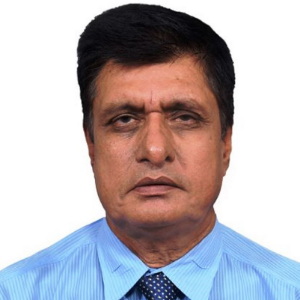Abstract:
Childhood obesity is a complex and chronic condition wherein children are above a healthy weight for their age, height and sex assigned at birth. It is chronic and complex in terms of its long-term consequences. The objective of this paper is present discussion on causes and consequences of childhood obesity. The author has used secondary date (collected from books, books chapter, journal articles, as well as publications of inter-governmental organizations). The used data are primarily ‘qualitative’ in nature. The method of data analysis is descriptive.
In terms of causes, obesity among children is caused my multiple of factors description of which is presented below:
- Diet: Regularly eating high-calorie foods (such as fast foods, baked food goods and vending machine snacks) can cause children to gain weight.
- Lack of physical activity: Physical inactivity is negatively correlated with the risk of obesity. Findings of several studies indicate the potential benefits of physical activities (like walking, cycling, wheeling, sports, active recreation, and play) in preventing obesity, besides having positive effects on mental health. Physical activity has the potential to increase school performance among children.
- Lack of exercise: Children who don't exercise much are more likely to gain weight. This happens because of the fact that they don't burn as enough (required) calories. In today’s world situation, it is worrisome to note that too much time spent in sedentary activities (involving a lot of sitting down; not active) adds to unhealthy food practices which is responsible for obesity among children. Sedentary activities include watching television, playing video games, use of internet and social media platforms, and interacting with peers and friends through mobile technology.
- Family factors: If the child comes from a family of overweight people, he or she may be more likely to put on weight.
- Psychological factors: It has been found that personal, parental and family stress can increase a child's risk of obesity. Some children overeat to cope with problems or to deal with emotions, such as stress, or to fight boredom. Their parents might have similar tendencies.
- Socio-economic factors: children who live in lower income neighbourhoods might not have access to a safe place to do exercise or engage in physical activities.
With regard to consequences, childhood obesity is a serious medical condition. Implications are reflected in the form of diabetes, high blood pressure, and high cholesterol. Also, it can lead to poor self-esteem and depression, including complications in physical, social and emotional well-being. More specifically, in terms of social and emotional complications, children who have obesity may experience teasing or bullying by their peers. Some of the physical complications of childhood obesity include:
- type-2 diabetes (too high blood sugar);
- high cholesterol, and high blood pressure;
- joint pain (extra weight causes extra stress on hips and knees); and
- breathing problems.
In conclusion, one of the best strategies to reduce childhood obesity is to improve the eating and exercise habits. Prevention strategies help protect children’s health, now and in the future.
Audience Takeway:
- The audience will understand the conceptual framework of obesity, in general, and child obesity, in particular.
- This presentation will facilitate the audience ger meaningful insight into common causes and consequences among children during childhood period.
- Interested researchers and academicians can use key findings of this paper to undertake further research studies on childhood obesity.




